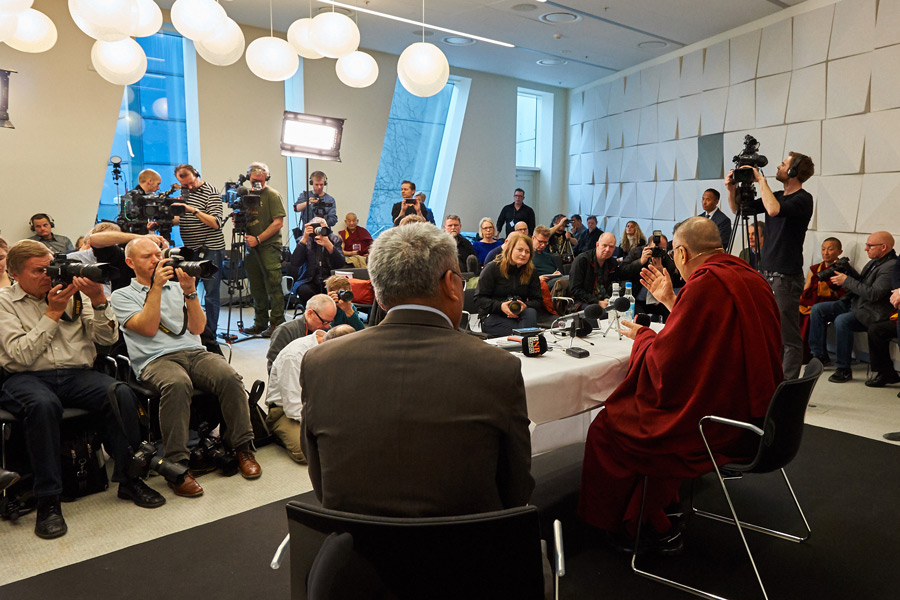
(TibetanReview.net, Feb13, 2015) – Tibet’s exiled spiritual leader, the Dalai Lama, has shrugged off Danish government leaders’ refusal to meet with him for fear of offending China during his ongoing visit to Copenhagen by saying he was retired and had nothing to ask them, reported the AFP Feb 11. He has also said censorship prevents Chinese people from understanding the real world outside.
“I think it’s quite logical. I have no political responsibility, so even if I met some political leaders I have nothing to ask,” he was quoted as saying at a press conference Feb 11. The Dalai Lama devolved his traditional political and administrative powers to the elected exile Tibetan leadership in 2011 while promising to take active interest in the Tibetan issue as a Tibetan. Successive Dalai Lamas, of which the current is the 14th, have been the temporal ruler and spiritual head of Tibet since 1642.
China froze ties with Denmark after former Prime Minister Mr Lars Loekke Rasmussen held a “private, non-official” meeting with the Dalai Lama in 2009, including by canceling bilateral ministerial meetings. It began reacting positively only after Copenhagen sent a diplomatic note to Beijing, saying Demark was “fully aware of the importance and sensitivity of Tibet-related issues and attaches great importance to the view of the Chinese government,” the report noted.
China calls Dalai Lama a separatist even though he only seeks genuine autonomy for Tibet under the existing constitution of the People’s Republic of China.
During the press conference, the Dalai Lama called the lack of a free media a major obstacle to China becoming a democratic nation, saying censorship fomented Chinese people’s “suspicion” of other countries. “The free world has (a) responsibility to bring China into the mainstream of world democracy. Chinese people also want that,” he was quoted as saying.
He felt that once the Chinese people “know the reality, they also have the ability to judge what is right or what is wrong.” So, his request to the people in the West was: “Whenever you have the opportunity, visit China and meet more people. And also if there is some kind of possibility, bring some Chinese media people, some Chinese intellectuals here.”


